We live in insane times. We all know it, and we all contribute via social media which stokes the fire--or possibly IS the fire. I'm reading Jaron Lanier's
Ten Arguments for Deleting your Social Media Accounts Right Now which makes it very clear how the machine works. "We in Silicon Valley like to watch the ants dig harder into their dirt. They send us money as we watch," he explains. We, the ants, must be kept constantly on edge and vaguely humiliated in order for their algorithm spells to work. Me, I enjoy
instagram, but have to watch the feelings of inadequacy or disconnection it produces even as it seems to be building community. And I feel utterly impotent in the face of revolting news (this week, Supreme Court horrors). Screaming at each other in apps is not improving anything; on the contrary, it's enabling or even encouraging the worst of human impulses. (Lanier lays this out quite clearly.)
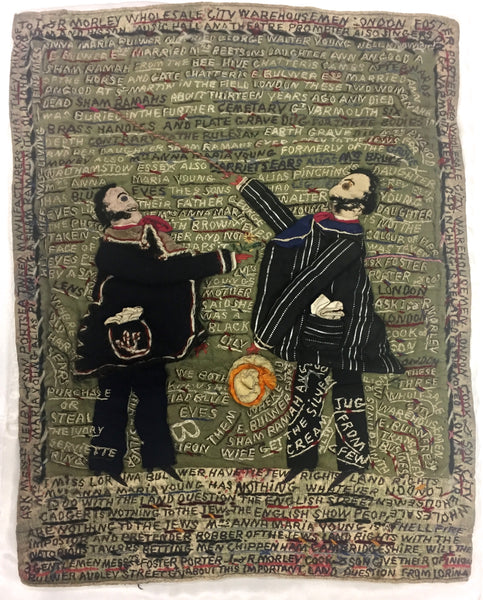
What does this have to do with a Victorian madwoman's sewing? Quite a lot. I recently had the privilege of studying the Lorina Bulwer letters behind the scenes at
Norwich Castle Museum. Lorina (as the curators lovingly call her) was a rich, well born lady who was committed as a "lunatic" to the workhouse in the late-nineteenth century. Whereupon she set about stitching her story in capital letters onto yards and yards of cloth scraps.
She was, to put it mildly, extremely angry. The letters are an unpunctuated but coherent account of her lineage, her circumstances, her impressions of the characters around her and the news of the day, but mostly her opinions about those who did her wrong and about who she really was and where she truly belonged. It is a Facebook rant in beautiful stitchery.
Lorina stitches about her (late, beloved) mother "Anncy Nancy Tickle My Fancy"; about the nefarious Dr Pinching of Walthamstow Essex who "examined" her; about "the female notorious card sharps of Cambridgeshire" and about "the man who murdered a woman at Norwich boiled some of her remains with sage and onion to try human flesh," and on and on and on. She suffered delusions of grandeur (she believed she was royal), and she plain suffered (Dr Pinching was convicted of abusing a 14-year-old girl), but what she clearly wanted most was to be HEARD.
We all want to be heard. We're all ranting. The way I feel about the so-called news, my ranting has about as much effect as Lorina stabbing the needle a million times into her scraps. Sewing was all she had to express herself, but nobody even looked at her work. Nobody Liked it. Now, over a century later, everybody who sees it likes it, because it's not only stunning but also saturated with powerful, extreme emotion.
And what are we leaving behind, posting into the cloud? Begging to be Liked is humiliating. It's addictive. It's also --in the instagram mending area--charming and heartening. It feels like real connection, because it's about sewing and there's magic in sewing.
Sewing was Lorina's only voice. It didn't help her in 1893, but it reaches us now, loud and strong. 125 years later, I'm totally identifying with her. At the moment it seems mending is true and real and necessary, and practically the only thing that makes sense.
2 Responses
Leave a comment
Comments will be approved before showing up.

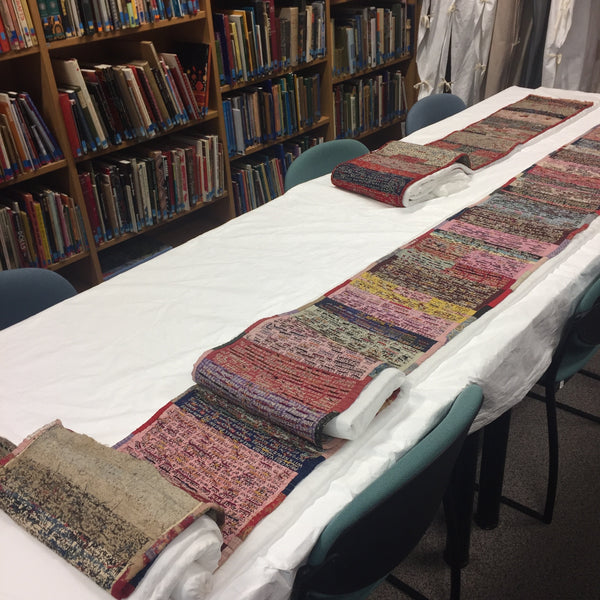
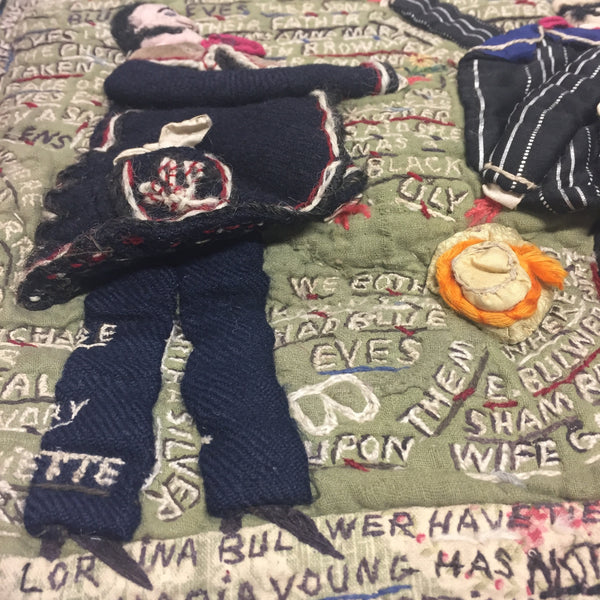
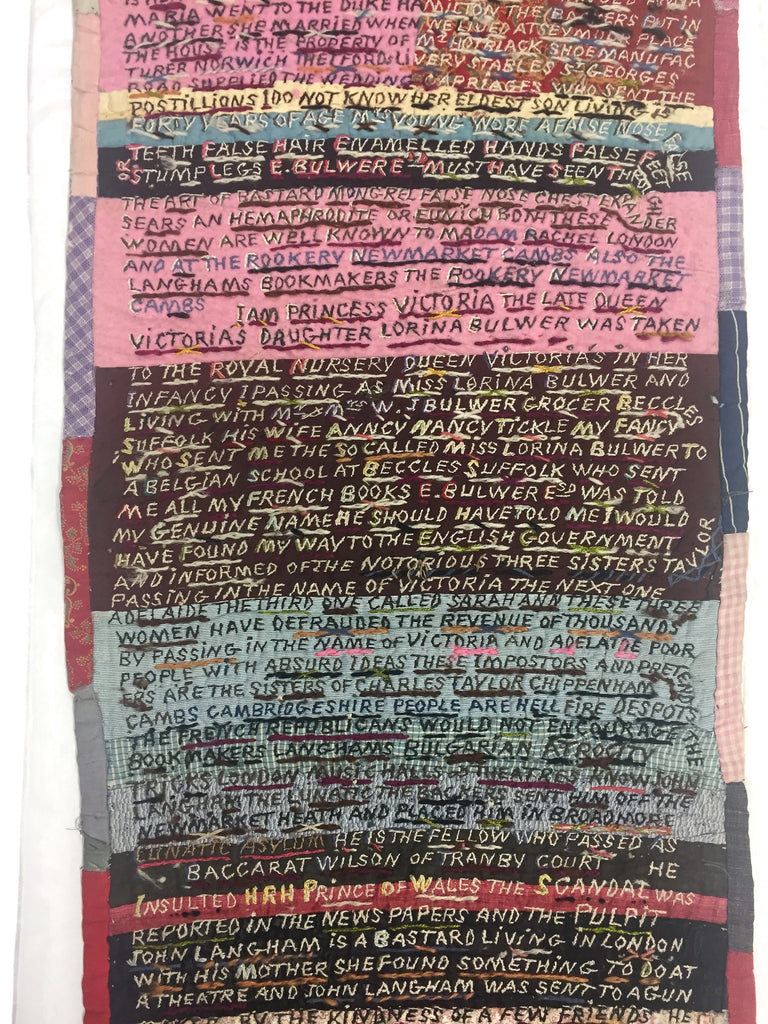
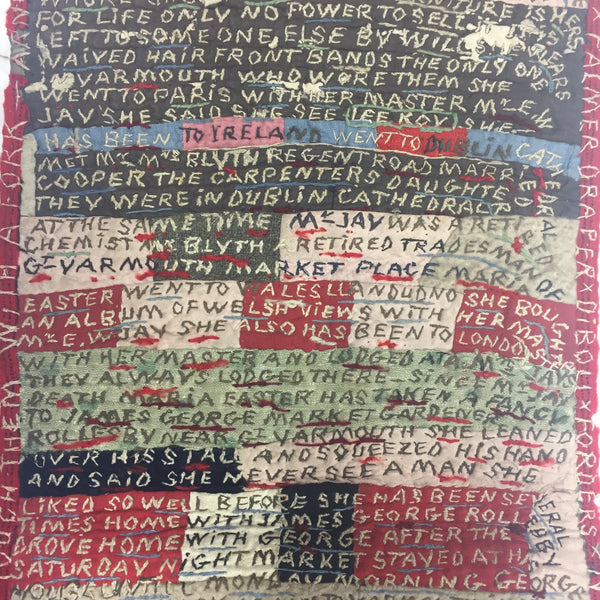

Kate Sekules
Author